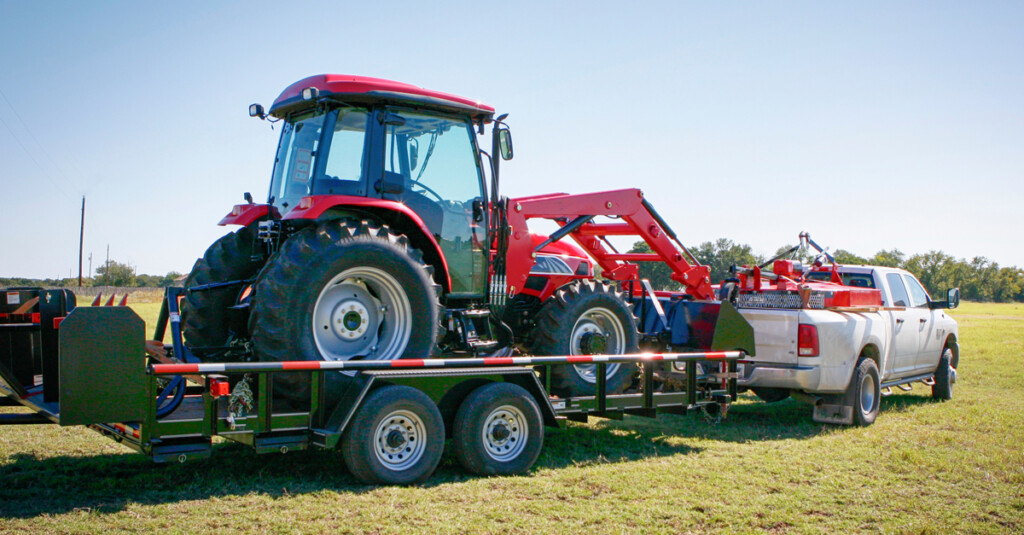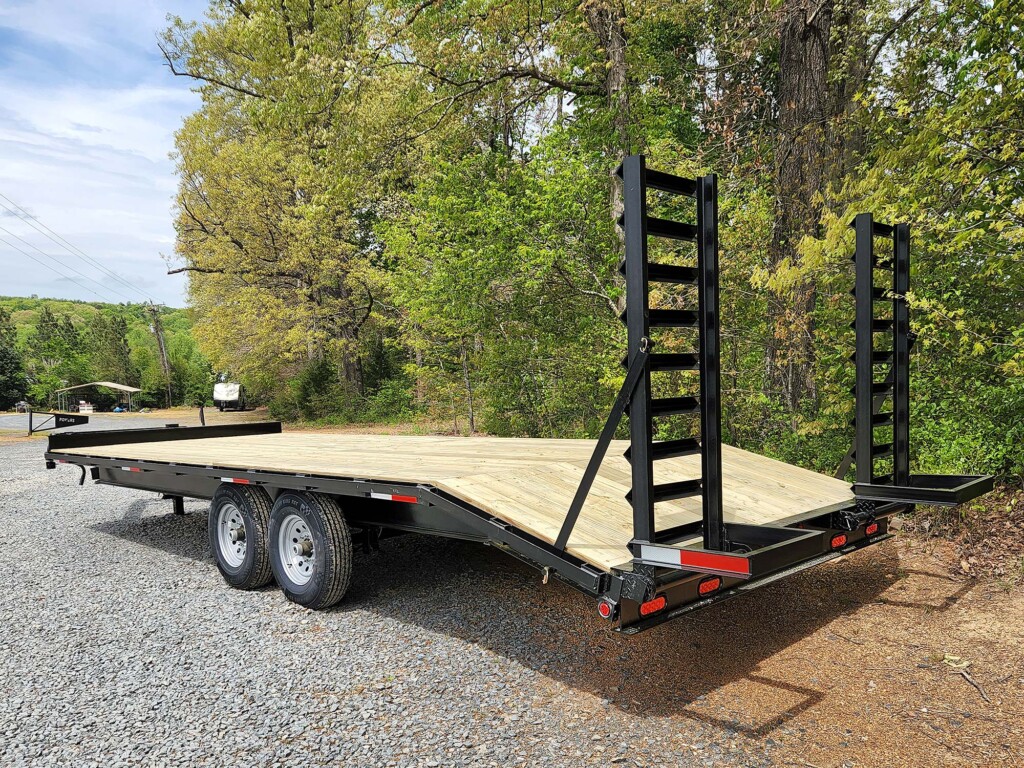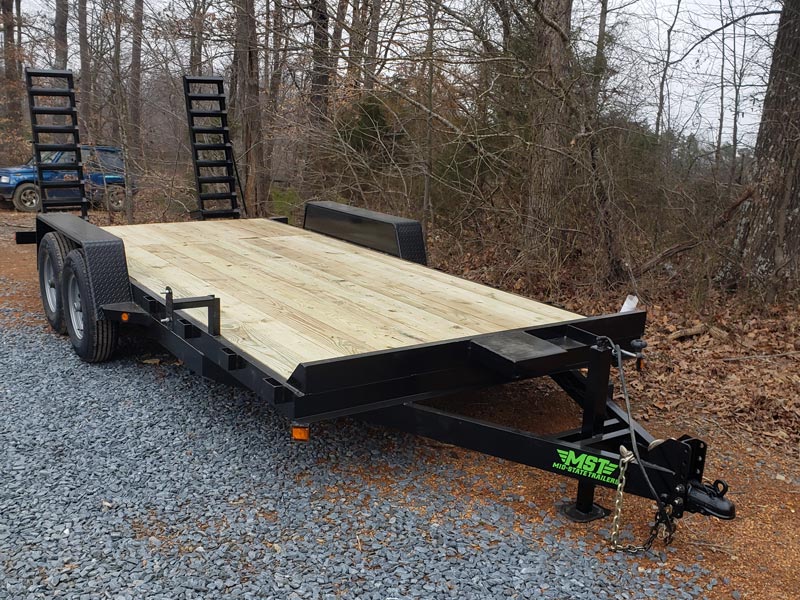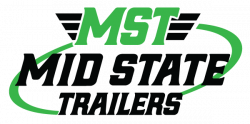Which Trailer is Best for Hot Shot Trucking? (With or Without a CDL)

Hot shot trucking has gained popularity in recent years as a flexible and potentially lucrative option for independent drivers. As an appealing career option, many potential hot shot drivers have questions swirling in their heads, like, “Do I need a different driver’s license?” and “What trailer should I use?” In this blog, we’ll explore the licensure options for up-and-coming hot shot drivers. As industry experts, we will also explore which trailer(s) would be the most ideal for your new hot shot trucking business.
First, let’s dive into licensure. If you’re planning on transporting vehicles or other large equipment, you may be wondering:
Do I Need a CDL for Hot Shot Trucking?
The short answer: no. Many drivers operate successful hot shot trucking businesses without a Commercial Driver’s License. While a Commercial Driver’s License (CDL) is typically required to drive and tow larger trucks and trailers, there are opportunities for those without a CDL to enter the world of hot shot trucking. Because towing regulations vary by state, it’s important to research what you are allowed to drive and tow with your license in your state. By being well-versed in what you’re legally allowed to drive and tow, you’ll be able to start building your successful hot shot trucking business.
For example, in North Carolina, your combined towing vehicle and trailer cannot exceed 10,000 GVWR (Gross Vehicle Weight Rating) with a regular non-commercial driver’s license (Class C). This means that the weight of your truck, your trailer, and the cargo being transported on your trailer cannot exceed 10,000 lbs. Again, this number varies state by state so it is important to consult the regulations set in place by your state’s Department of Motor Vehicles.

After determining what GVWR you’re legally allowed to tow, your next question is likely:
What Trailers Can I Tow Without a CDL?
As mentioned above, the most important aspect to consider when determining which trailer will best accompany your hot shotting business is the trailer’s GVWR. There will be a multitude of trailers that fall within that GVWR, so it is also essential to determine what type of trailer will be most conducive to your trucking business.
The success of your hot shot trucking business directly correlates with the efficiency of your trailer, namely what type and how much cargo it is able to transport. For example, light-duty trailers like Utility Trailers are more commonly used for transporting small to medium-sized equipment needed to run a small business like a landscaping company. Because of the limited deck space and load capacity available on Utility Trailers, they aren’t the best choice for hot shotting if you want to maximize your business with the amount and type of cargo you can haul.
So, what types of trailers are ideal for hot shot trucking?
Equipment Haulers

As described in their name, these trailers are ideal for hauling equipment. Equipment Haulers typically have a flatbed design with the deck situated between the fenders. They usually have a lower deck height than other trailer types, allowing for easier loading and unloading of equipment. These trailers can have high payload capacities and are built to handle heavy loads. They are also quite versatile and can accommodate various types of cargo, including oversized or irregularly shaped items.
Because they are usually not as long as their Deckover or Gooseneck counterparts, Equipment Haulers offer good maneuverability, making them easier to navigate through tight spaces or congested areas.
Deckover Trailers

You’ve probably guessed by their name that Deckover Trailers have a deck that extends over the trailer’s wheels, providing a wider deck with more usable space. Because the deck extends over the wheels, they typically have a higher deck height compared to Equipment Haulers. On the positive side, the higher deck provides greater ground clearance which translates into better maneuverability in off-road conditions. On the negative side, the higher deck height can make it harder to load and unload heavy loads.
Deckovers are commonly used for hauling construction materials, vehicles, or other large and heavy loads.
Gooseneck Trailers
Unlike Equipment Haulers and Deckover Trails that most often attach to a truck via a bumper hitch, Gooseneck Trailers hitch to a ball or other connector in the bed of your truck. The hitch point in front of the rear axle distributes the weight more evenly and improves stability when towing which is especially helpful when towing larger loads at highway speeds. Hitching to a point in front of the truck’s rear axle also allows Gooseneck Trailers to be longer and wider, meaning more deck space, than trailers that hitch at the bumper.

Gooseneck trailers often have higher towing capacities compared to bumper-pull trailers, allowing for more significant payloads, which can be critical in the hot shot trucking industry. Because of their maximized deck space and versatility, Gooseneck Trailers are a very popular option for hot shot drivers. It should be noted, though, that because Gooseneck Trailers can be quite large with high capacities, it is important to ensure that the GVWR of the trailer does not exceed what your driver’s license allows you to tow.
In summary, equipment hauling trailers are designed for versatility and ease of loading heavy equipment, deckover trailers offer wider deck space and better ground clearance, while gooseneck trailers provide increased stability and towing capacity through their specialized hitch design. The choice between these trailers depends on the specific needs and requirements of the cargo being transported as well as the GVWR of the trailer itself.
Another thing to consider when selecting a trailer for your hot shot trucking business is the ramps and other add-ons you may need.
Ramps & Other Add-ons
Depending on the type and size of cargo you plan on transporting, having a ramp leading up to the back of your trailer may be crucial. Whether it be a flip-up or a slide-in dovetail, ramps can help you load vehicles and other motorized equipment onto your trailer. Even if you plan on using a forklift to load from the side of your trailer, having a ramp system on your trailer can allow you to diversify the type of cargo you’re able to transport.

When buying a trailer, there are numerous other add-ons beyond ramps that may be beneficial to your hot shot trucking business. Side rails along the length and width of your trailer can help keep cargo secure. A toolbox welded onto your trailer means you’ll always have the necessary tools with you if you ever need to do some quick repairs on the fly. Looking at the available add-ons for your trailer can help make your new hot shot trucking business both versatile and efficient.
Get the Trailer You Need for Hot Shot Trucking at Mid State Trailers
At Mid State Trailers, we are industry experts that strive to provide you with the ideal trailer to support your hot shot trucking business. Whether you are interested in one of our standard models or want a fully custom solution, our trailers are made to fit your needs and business goals. If you have any questions about which trailer and/or add-ons would work best for your business needs, give our sales lead, Oscar, a call at (336) 857-2888. He will be happy to answer any and all of your questions as well as provide you with a quote and go over our financing options. Join the lucrative and growing world of hot shot trucking with your very own Mid State trailer!
